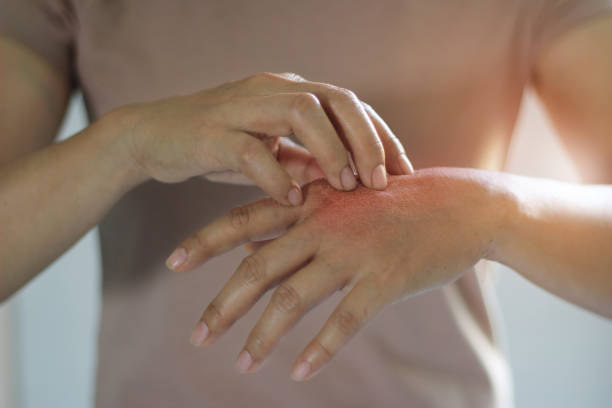What are the causes of skin infections?
The skin is the body’s most important organ. It serves many roles, including protecting and covering your body. It can help keep bacteria out. However, there are times when germs could cause skin irritation. It usually happens when bacteria infect your body via cuts, breaks or even a cut on the skin. Other skin infections can occur in areas where the skin is rubbing together, particularly when the area is wet. The infection can also happen if there is a deficiency in blood supply to a particular part of your body, or in the event that your immune system has been weak due to another illness or a medical procedure.
Certain skin infections can are small and appear on the surface of your skin. Other infections may penetrate deep into your skin, or even spread over a larger area.
What are the causes of skin conditions?
Skin infections can be caused by a variety of bacteria. Examples include:
- Bacteria can cause cellsulitis, impetigo as well as staphylococcal (staph) infections.
- Viruses can cause the shingles, warts, and herpes simplex
- The fungi can cause athletes’ feet as well as yeast infection
- Parasites can cause bodies lice, head lice and Scabies
The person with the highest likelihood suffer from an infection on the skin?
There is a higher chance that you will contract an infection of the skin if:
- Are not circulating well.
- Are you suffering from you been diagnosed with diabetes?
- Are older
- Are suffering from you been diagnosed with an immune system disorder Such as HIV
- Are you suffering from a weak immune system as a result of treatment or other drugs which suppress the immune system.
- You must remain in a single position for an extended period of time like if you’re sick and need to remain in bed for an extended period of time or you’re crippled
- Are malnourished
- Excessive skinfolds could happen if you suffer from an overweight body.
What are the signs of skin infection?
The symptoms are based on the kind of the infection. A few of the symptoms common to a variety of skin infections are itching, rashes and redness, swelling as well as pain, pus as well as the itching.
How do you diagnose skin conditions?
To identify a skin ailment the doctor who treats you will perform a physical examination and inquire about the symptoms. There may be lab tests like the skin culture. This test is used to determine the type of infection you are suffering from with a sample taken from your skin. The doctor may collect the sample by either scraping your skin or taking tiny pieces of skin ( biopsy). Some providers may also employ different tests, for example blood tests.
What are the best ways to treat skin conditions?
The treatment will depend on the nature of the disease and how serious the condition is. Certain infections can disappear by themselves. If you require treatment, it could be the use of a lotion or cream to apply to the skin. Other treatments that are possible include medication and procedures to eliminate the pus.
Clinical Trials
- ClinicalTrials.gov: Molluscum Contagiosum (National Institutes of Health)
- ClinicalTrials.gov: Skin Diseases, Infectious (National Institutes of Health)
Journal Articles, References and abstracts from Medline/PubMed (National Libraries of Medicine)
- Article inflammatory and infectious skin conditions in line-field optical coherence imaging.
- Article Integrating transcriptomics, proteomics and metabolicomics data to determine the presence of.
- Article Assessing the importance of the asymptomatic carriage of throats by Streptococcus Pyogenes in.
- Skin Infections – look up other articles
Patient Handouts
- Blastomycosis (Medical Encyclopedia)
- Boils (Medical Encyclopedia)
- Candida skin infection (Medical Encyclopedia)
- Carbuncle (Medical Encyclopedia)
- Donovanosis (granuloma inguinale) (Medical Encyclopedia)
- Ecthyma (Medical Encyclopedia)
- Erysipelas (Medical Encyclopedia)
- Molluscum contagiosum (Medical Encyclopedia)
- The soft tissues are prone to necrosis. inflammation (Medical Encyclopedia)

